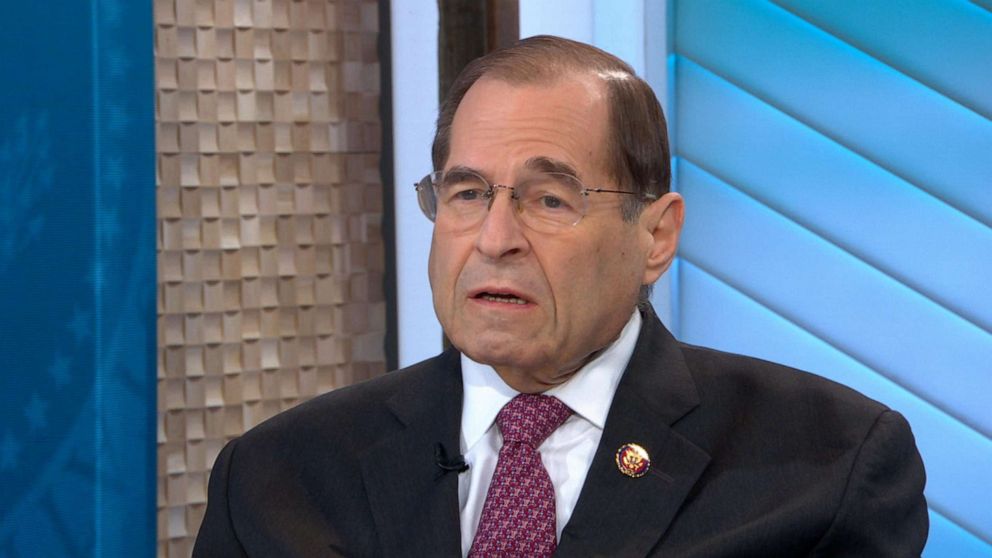Subpoena for 'unredacted' Mueller report issued by House Judiciary Committee chair Jerry Nadler
The subpoena will set up a potential legal battle with the Justice Department.
The chairman of the House Judiciary Committee has issued a subpoena for the full, unredacted Mueller report, setting up a potential legal battle with the Justice Department for the special counsel's full findings and underlying materials.
We need the entire report unredacted, and the underlying documents, in order to make informed decisions.
Chairman Jerry Nadler, the Democrat from New York, asked for the department to comply by May 1, the day U.S. Attorney General William Barr is scheduled to testify before the Senate Judiciary Committee, and one day before he is scheduled to appear before the House.
"I am open to working with the Department to reach a reasonable accommodation for access to these materials, however I cannot accept any proposal which leaves most of Congress in the dark, as they grapple with their duties of legislation, oversight and constitutional accountability," Nadler said in a statement.
Nadler teased the subpoena action to get the full report from special counsel Robert Mueller's 22-month investigation on "Good Morning America" Friday.
"That subpoena will come in the next couple of hours," Nadler said. "We need the entire report unredacted, and the underlying documents, in order to make informed decisions."
Barr released the report with redacted sections to the public on Thursday around 11 a.m. EDT. The report, which is 448 pages, does not conclude the president or his campaign conspired or coordinated with the Russians and does not reach a conclusion on obstruction of justice.
However, the report does document "numerous links between individuals with ties to the Russian government and individuals associated with the Trump Campaign" and 11 possible instances of obstruction of justice.

Nadler's calls for the full report echo demands from Democrats on the Hill, including most 2020 presidential candidates.
The committee chairman's Republican counterpart, Rep. Doug Collins of Georgia, called the subpoena "wildly overbroad" in a statement," adding that "he's rushing to subpoena material that he hasn't even asked the department to provide yet and that, by law, can't be shared outside the Justice Department."
The subpoena is also for the "underlying evidence" of the report, despite a federal procedural rule that requires information from a grand jury to remain secret.
U.S. Attorney General Bill Barr has stood behind this rule, noting in his four-page summary of the Mueller report that the "restriction protects the integrity of grand jury proceedings and ensures that the unique and invaluable investigative powers of a grand jury are used strictly for their intended criminal justice function."
I believe that one of the things that we need that evidence for is to determine whether to do that or not.
During his confirmation hearing, Barr was asked by Rep. Ed Case, a Democrat from Hawaii, whether he would ask the court to release grand jury material under certain exceptions. Barr turned the tables, saying, "The chairman of the Judiciary Committee is free to go to court if he feels one of those exceptions is applicable."
While the shroud of grand jury secrecy has been lifted in some notable cases, including Watergate and the investigation that led to President Bill Clinton's impeachment proceedings, Congress will be up against a challenge in persuading a court for disclosure of grand jury material from the Mueller probe.
Some legal experts believe the case for getting grand jury material would be stronger if the House opened an official impeachment proceeding, but Nadler, who can open the proceedings as chairman of the judiciary committee, rejected that option on "GMA" Friday.
"Yes, some people believe that," Nadler said. "I believe that one of the things that we need that evidence for is to determine whether to do that or not."
On impeachment proceedings, Nadler said, "We're not there." He added that Congress first has to hear from Barr and Mueller.
ABC News' Jack Date contributed to this report.




